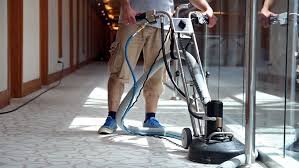The hospitality industry is a dynamic sector that constantly evolves to meet the needs and expectations of travelers. As the demand for accommodation grows, so does the need for high-quality infrastructure to support hotels and resorts worldwide. Among the many crucial elements in hotel construction, the role of concrete suppliers cannot be overstated. Concrete, a versatile and durable material, forms the foundation (quite literally) of any construction project. In this article, we’ll delve into why and when a hotel might need a concrete supplier, exploring the various aspects of hotel construction where concrete plays a pivotal role.
Foundation and Structure
Concrete serves as the backbone of a hotel’s foundation and structure. Whether it’s a small boutique hotel or a towering skyscraper resort, a solid foundation is essential for stability and longevity. Concrete suppliers provide the necessary materials for laying the groundwork, ensuring that the building stands firm against natural elements and structural stresses.
Flooring and Pavements
Smooth, durable flooring is a hallmark of a well-designed hotel. Concrete suppliers offer a range of options, from polished concrete floors in lobbies and common areas to decorative stamped concrete for outdoor pathways and pavements. These surfaces not only enhance the aesthetic appeal but also offer ease of maintenance and longevity, making them ideal for high-traffic areas.
Vertical Elements
From walls to columns and beams, concrete is extensively used in vertical construction elements. Hotels often feature unique architectural designs, requiring customized concrete solutions. Suppliers play a crucial role in providing specialty mixes and forms to meet the design specifications, ensuring structural integrity while accommodating aesthetic preferences.
Swimming Pools and Water Features
Many hotels boast luxurious amenities like swimming pools and water features. Concrete’s versatility makes it an ideal choice for constructing these elements. Suppliers offer specialized concrete mixes that are waterproof and resistant to chemical corrosion, ensuring the longevity and safety of these recreational areas.
Soundproofing and Insulation
Comfort is paramount in the hospitality industry, and concrete contributes to creating a peaceful environment by offering excellent soundproofing and insulation properties. Suppliers provide acoustic concrete solutions that mitigate noise transmission between rooms and from external sources, enhancing the overall guest experience.
Environmental Considerations
Sustainability is a growing concern in the construction industry, and concrete suppliers are adapting to meet these demands. Many offer eco-friendly concrete mixes that incorporate recycled materials or reduce carbon emissions during production. Hotels seeking LEED certification or aiming to minimize their environmental footprint can benefit from these sustainable options.
Renovations and Maintenance
Over time, hotels may undergo renovations or require maintenance to uphold their standards. Concrete suppliers play a crucial role in providing materials for repairs, upgrades, and expansions. Whether it’s matching existing concrete finishes or supplying reinforcements for structural enhancements, reliable suppliers are essential partners in maintaining the hotel’s infrastructure.
Conclusion
In the realm of hotel construction, the importance of a concrete supplier cannot be overstated. From laying the foundation to adding the finishing touches, concrete is a fundamental building material that ensures stability, durability, and aesthetic appeal. Whether it’s constructing a new hotel from the ground up or renovating an existing property, hotels rely on suppliers to provide high-quality concrete solutions tailored to their unique requirements.
As the hospitality industry continues to evolve, the role of concrete suppliers will remain integral in meeting the ever-changing demands of hotel construction. By partnering with reputable suppliers that offer quality products, innovative solutions, and sustainable practices, hotels can build and maintain infrastructure that not only meets but exceeds the expectations of modern travelers. In essence, the partnership between hotels and concrete suppliers is not just about laying the groundwork—it’s about building a solid foundation for success in the hospitality industry.




